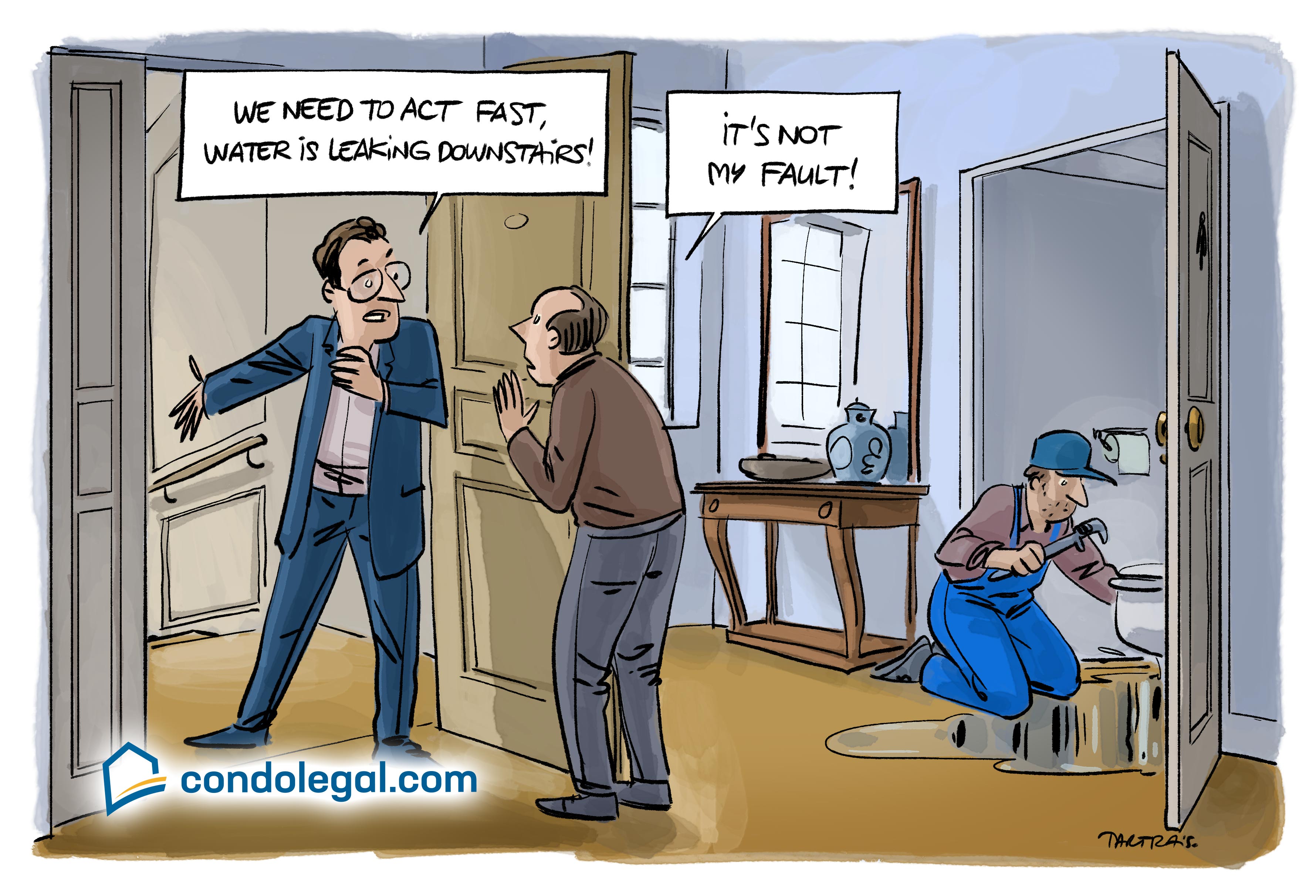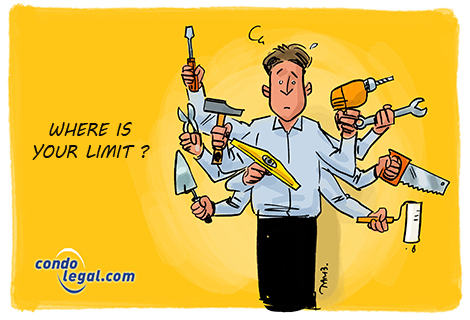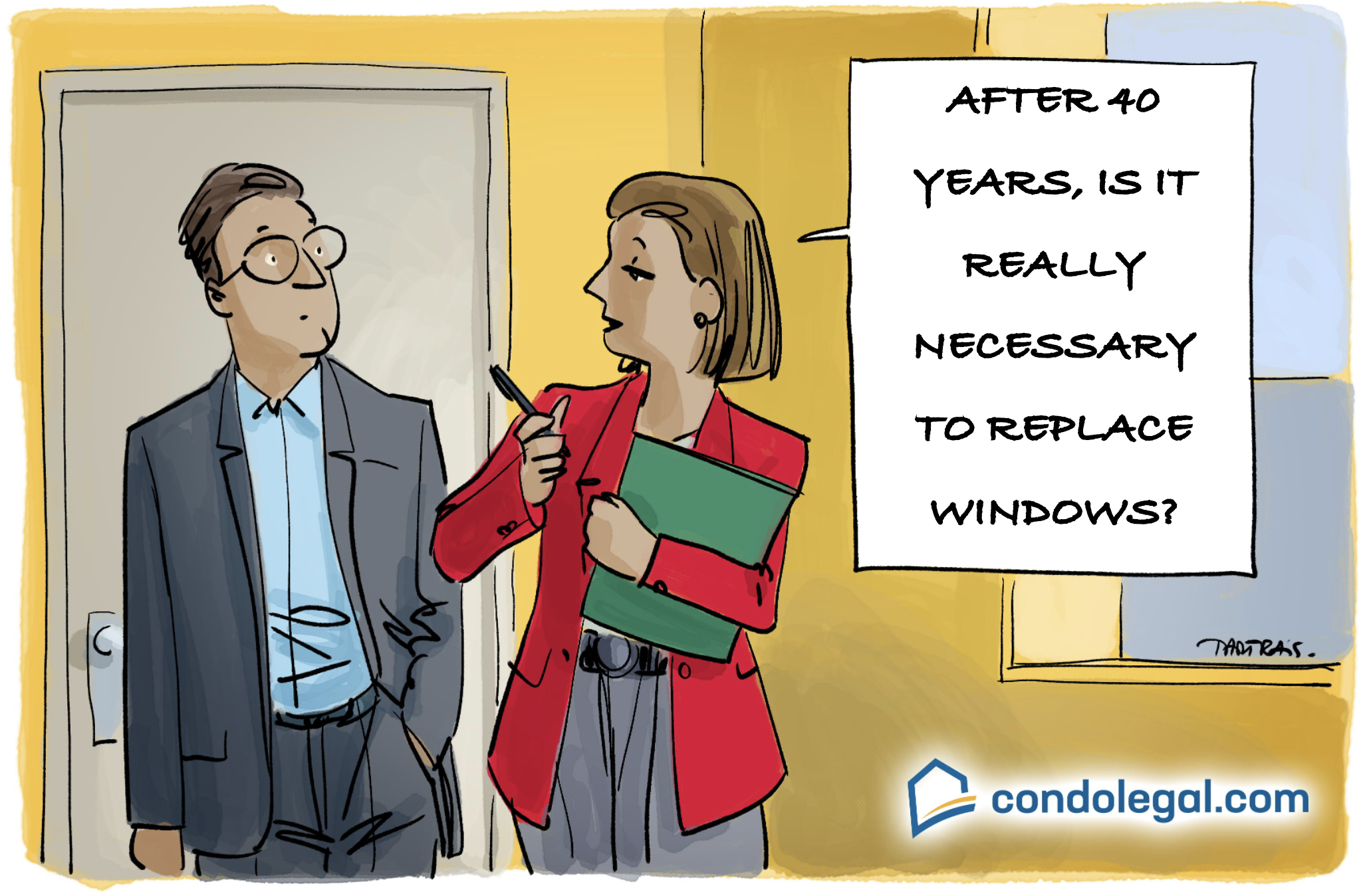13 Articles

A reserve fund study was recently conducted by a certified evaluator. The study proposed two scenarios: 1. Scenario 1 (status quo): This scenario, which is not recommended by the evaluator, would maintain current contributions but lead to a deficit in approximately 15 years, requiring special assessments. 2. Scenario 2: Recommended by the evaluator, this scenario involves a significant increase in condo fees to ensure the financial sustainability of the syndicate. The outgoing board of directors…...

I've recently become a co-owner. The building I live in, which is over 30 years old, has 10 units. The contribution to the reserve fund is substantial. In fact, it consumes 20% of the condominium's budget! This seems excessive to me. The other co-owners share this concern and question if this rate is justified. We fear that this financial burden might jeopardize our ability to cover other essential current expenses. If this situation persists, some…...

Seven years ago, the board of directors engaged professionals to conduct a contingency fund study. Upon reviewing it, the directors at the time deemed the financial contributions required from the co-owners to the contingency fund too costly. Recently, a sale of an apartment in our building failed because the buyer was informed that the common charges had not been significantly increased. We aim to bring order to our co-ownership by adhering to the recommendations of the…...

Our syndicate of co-ownership will soon undertake repair work on the building's garage slab. As a director, we consulted an engineer to prepare a cost estimate. We are now at the stage of initiating the work. Given the significant costs involved, we have questions about choosing the contractor. It is essential for our co-ownership to select a contractor who not only offers a realistic and competitive estimate but also has a solid reputation and verifiable references.…...

Following water damage in our building, we consulted a plumber to find the cause. The analysis revealed a malfunction in the toilet of our neighbor's apartment, indicating that a replacement was imperative to prevent other problems. Despite the plumber's clear diagnosis and the obvious proof of malfunction during his intervention – with the toilet overflowing upon the addition of just eight squares of toilet paper and requiring emergency unclogging – the concerned owner categorically refuses…...

One of our co-owners complains of a slow flow of wastewater at the toilet, the bath drain and the bathroom sink. Obviously, there is abnormal operation of the drainage system. Questions: How to determine the responsibility to pay for the unclogging of the clogged water column? Is it up to the co-owner or the syndicate of co-owners? Are there elements to consider, for example the place where the blockage occurs or the state of the…...

For a little over two years now, we have been the proud owners of an apartment in a small co-ownership complex. I also have the honor of serving on the board of directors, allowing me to actively participate in the life and management of our community. At our annual co-ownership' meeting last week, we discussed various important topics, one of which was the maintenance of our common portions. To ensure their proper maintenance while controlling our…...

Questions : Can co-owners or occupants of the building be authorized by the board of directors to carry out voluntary work (such as painting the corridors, washing the windows, laying out a small gravel path, etc.), in short, limiting the number of contractors for the maintenance of the building, and this to save several thousand dollars each year? And if this is possible, what are the consequences? When it comes to liability insurance, is this…...

The windows of our unit are at the end of their lives, according to a specialist who changed the thermos of a window that don't 2 windows have already cracked. Despite my express request to the syndicate to change our windows, he prefers to wait a few years to change all the windows. We have been losing the enjoyment of one of our main windows for 2 years. Its opening is a danger, because it…...

A co-owner carried out work on their terrace (a common portion for restricted use) without obtaining prior authorization from the board of directors. Since this work, leaks have been detected at the roof level, causing damage and posing risks to the building's integrity. This situation illustrates the limitations of co-owners' rights in restricted common portions. The board of directors asks the following questions: How can the syndicate stop this work? Who must undertake and pay…...
